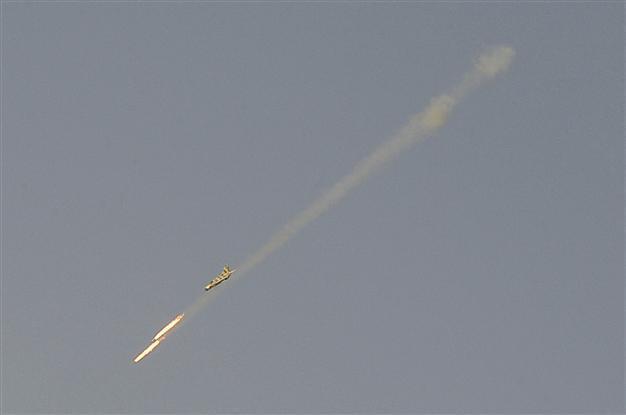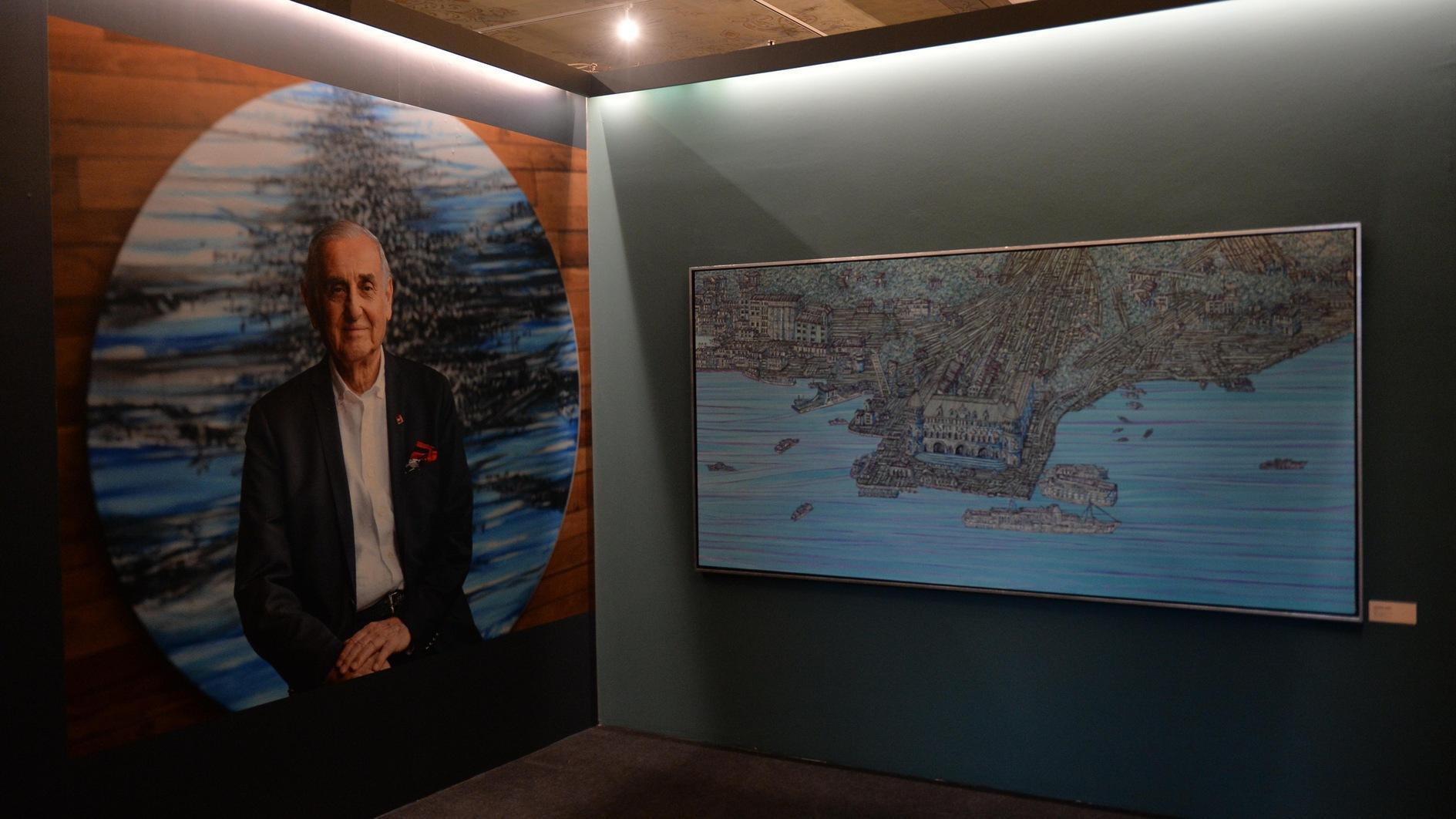US shoots down 'difficult, dangerous and costly' no-fly zone in Syria
WASHINGTON - Agence France-Presse

A Syrian Air Force fighter plane fires a rocket during an air strike loyal to Syria's President Bashar al-Assad in Raqqa province, eastern Syria June 10, 2013. REUTERS photo
The White House on June 14 all but ruled out the notion of mounting a no-fly zone in Syria, billing it as difficult, dangerous and costly, and unsuitable to halting close quarters ground battles.A day after US officials pledged to stiffen military help to Syrian rebels, likely moving towards sending some form of arms for the first time, they made it clear that swift US mission creep in the country is not on the cards.
Deputy national security advisor Ben Rhodes said mounting a no-fly zone in Syria poses significant logistical and strategic challenges that are more acute than those faced by NATO and Arab League allies in Libya in 2011.
"It's dramatically more difficult and dangerous and costly in Syria, for a variety of reasons," Rhodes said.
"One is that in Libya, you already had a situation where the opposition controlled huge portions of the country and you could essentially protect those portions of the country from the air. "You do not have the same types of air defense system that exist within Syria. So in that regard, it's more difficult."
Rhodes also argued that in many cases, rebels and forces fighting with Bashar al-Assad's Syrian regime were "fighting in some instances block by block in cities" in a way that made targeting particular forces difficult.
"I think people need to understand that the no-fly zone is not some type of silver bullet that is going to stop a very intense and, in some respect, sectarian conflict," Rhodes said, stressing though that Washington was not ruling out options, some strategic approaches would not work.
Option has downsides: Rice
"We don't at this point believe that the US has a national interest in pursuing a very intense, open-ended military engagement through a no-fly zone in Syria at this juncture." US ambassador to the UN Susan Rice took a similar tack when asked about a possible no-fly zone in New York.
"That option has some downsides and limitations that we are very well aware of and will factor into any decision," said Rice, who will next month take over as Obama's National Security Advisor at the White House.
Domestic opponents of the White House have demanded that Obama set up a no-fly zone in Syria to protect refugees and rebels from air strikes.
Republican Senator John McCain said June 14 that the United States should be able to set up a no-fly zone "fairly easily," "I'm talking about establishing a safe zone, it's neutralizing Bashar's air power, which is a decisive factor now in this conflict, as compared to doing nothing," McCain told CNN on June 13.
State Department spokeswoman Jen Psaki rejected some reports in US media that a no-fly zone had been decided upon, though said it remained in the options that Obama had at his disposal.
A day after his White House announced stringer US aid to Syrian rebels after concluding Assad's forces had crossed a US "red line" by using chemical weapons, Obama still had not addressed the policy change in public.
The decision came after prolonged agonizing among White House officials about how to deepen US aid to Syrian rebels while at the same time trying to ensure America is not dragged into another war in the Middle East.
















